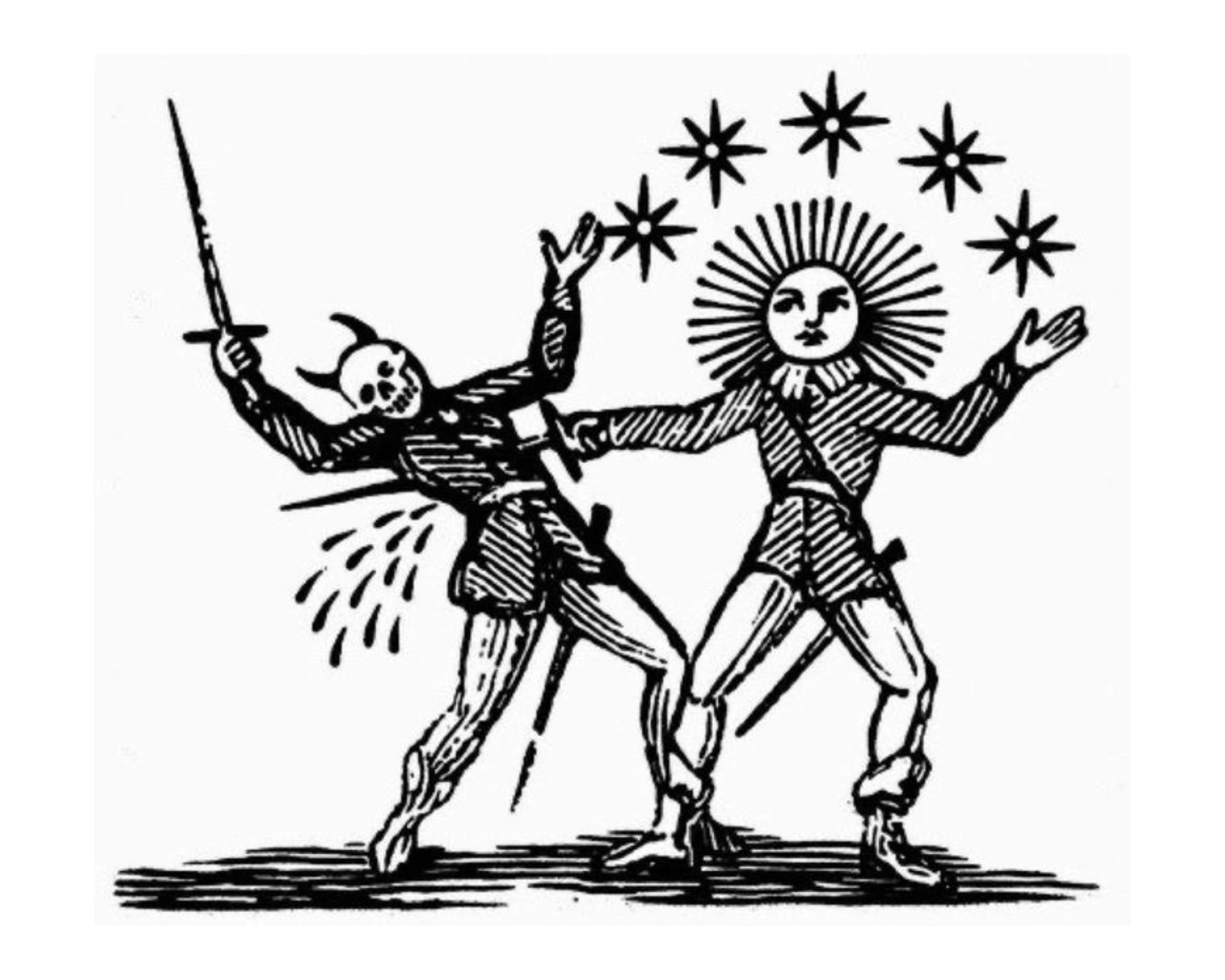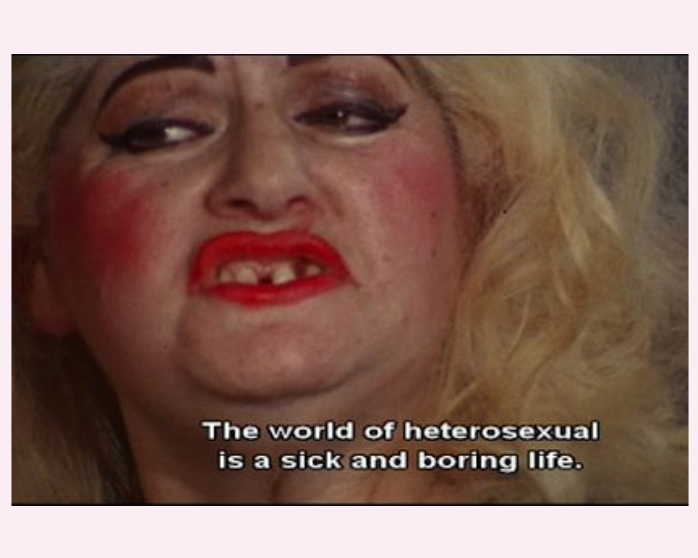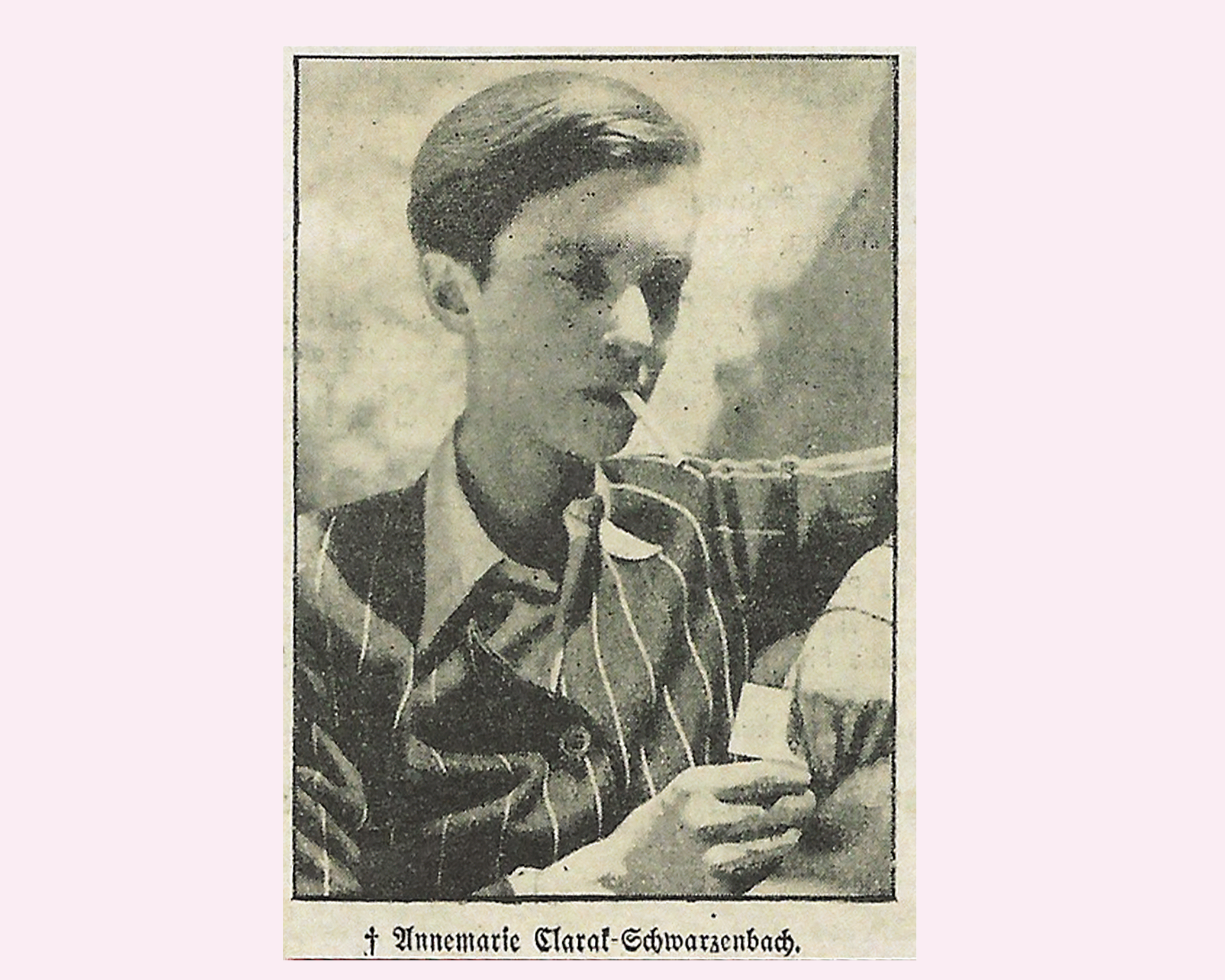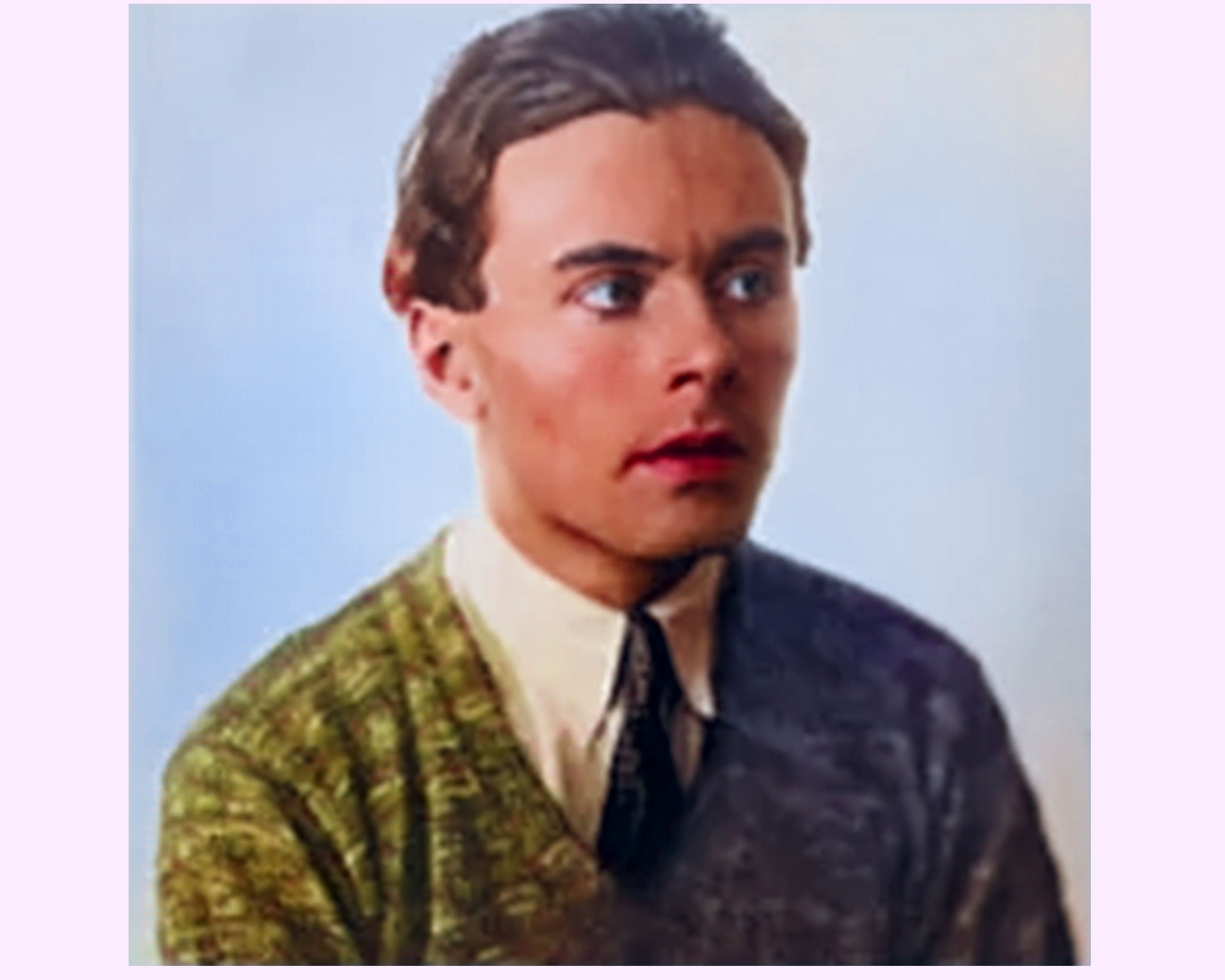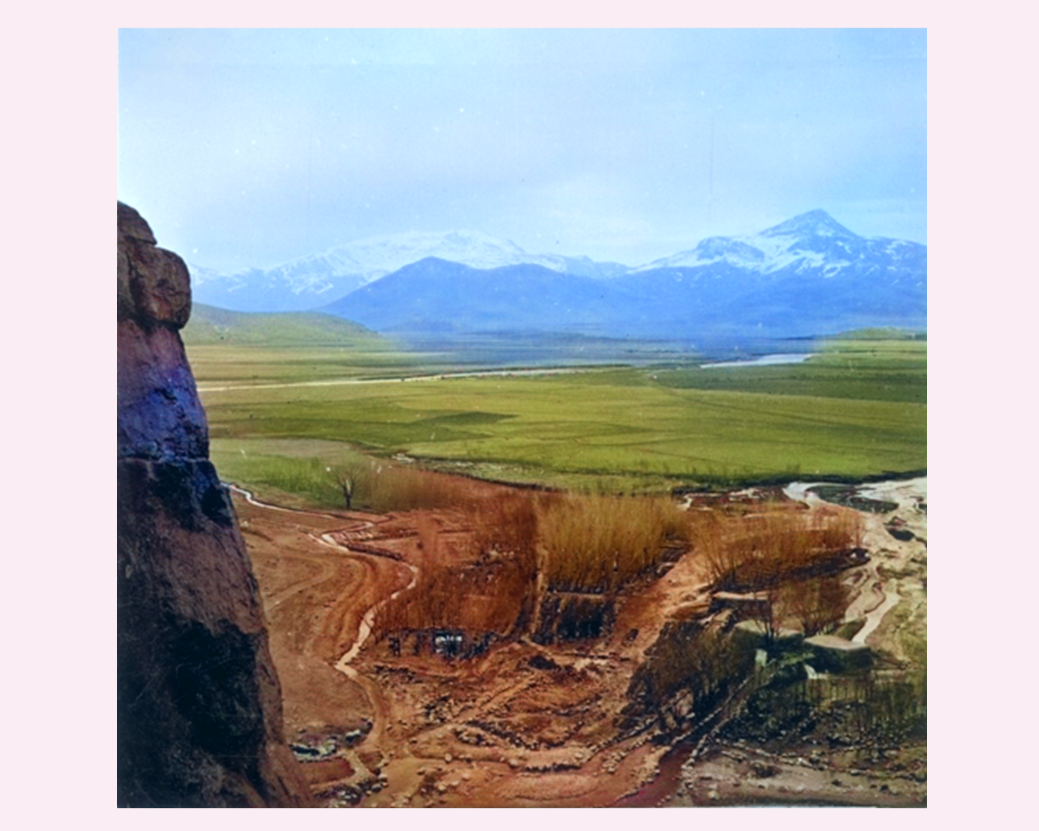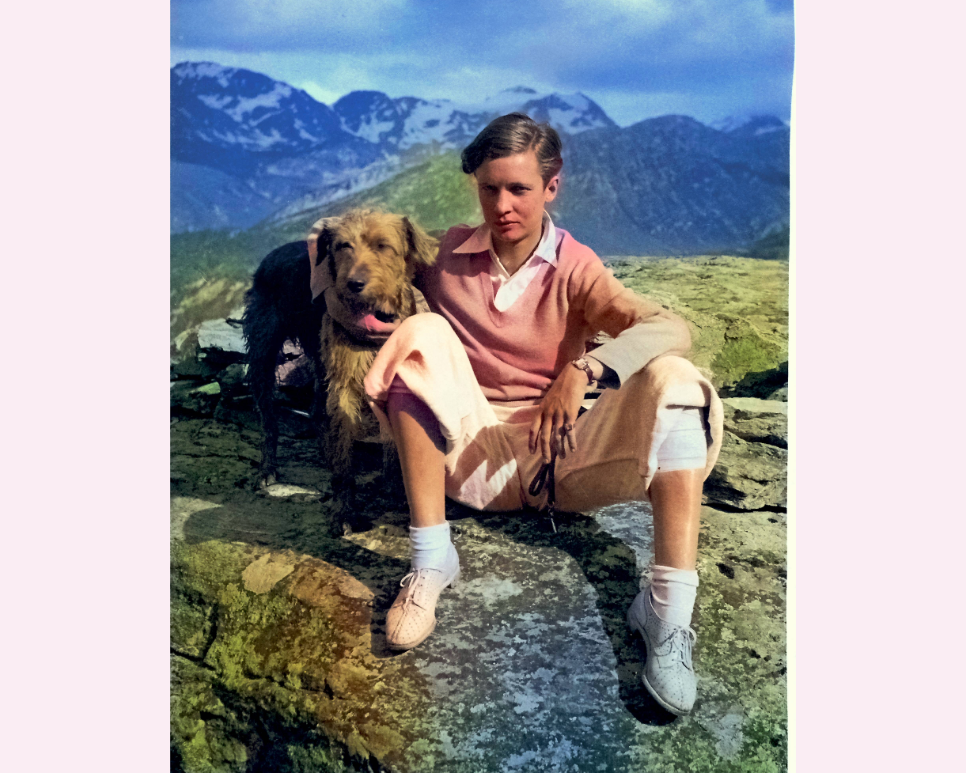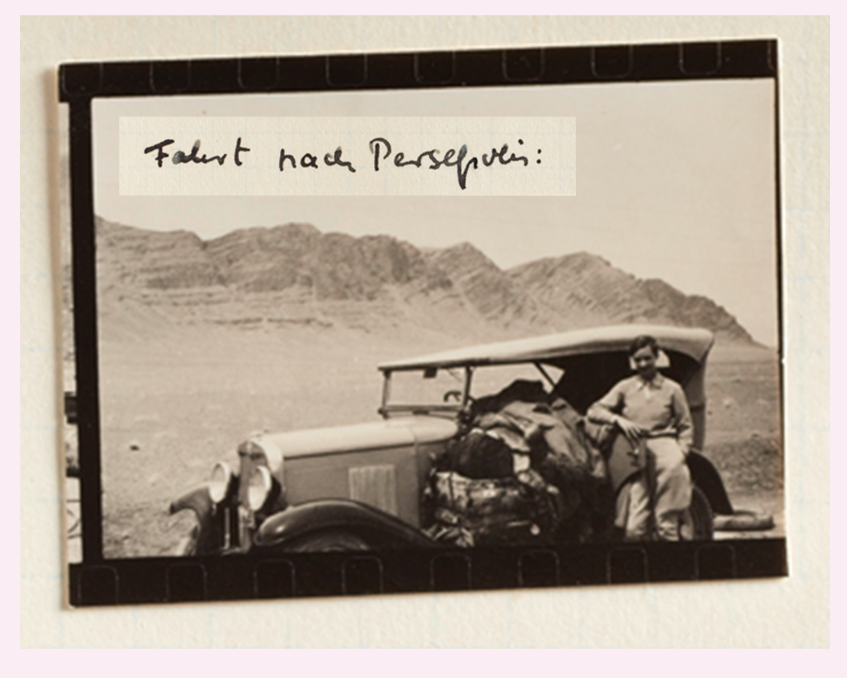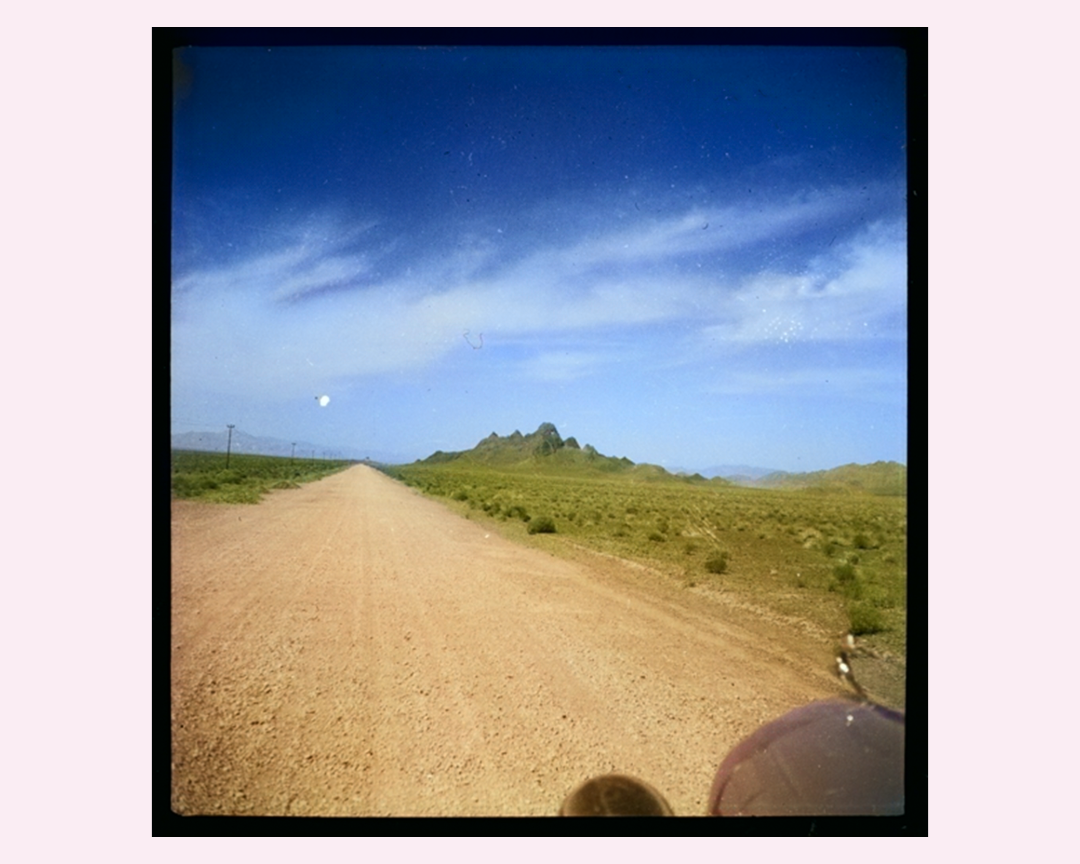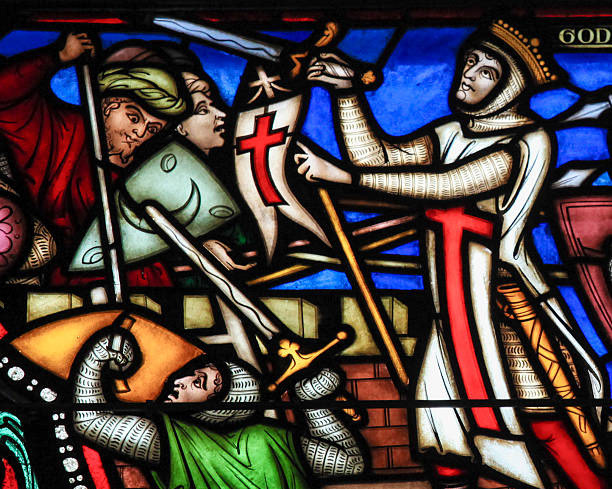"The Happy Valley" ch. 2
By Annemarie Schwarzenbach. Translated and abridged by Cleo Varra
Previous: "The Happy Valley" ch. 1
Iran- 1935
These nights are endless! The torment of these days is no longer bearable! What did I hope for before, while I impatiently awaited the dawn?- Torn from your sphere, torn from your familiar consolations, from a breathing face, from a beating heart, from lovely, changing landscape, you must finally surrender to the great high winds that tear even your last hopes to shreds. Where is there to turn? All around there is only bareness, basalt-gray rocky ridges, leper-yellow deserts, dead moon valleys, chalk streams and silver rivers in which the dead fish float upside-down. Where is there to go? - How do you describe the unbearable? How do you find the words? What illness has come over me?
***
- "Malaria fever," they said in Tehran - that was many months ago. The attacks repeated themselves. They gave me quinine and atebrine.
I was forbidden to swim in the ice-cold pond in the garden of Farmanieh. I had long since stopped working and had exchanged life on the excavation site for life at the embassy - the rolling sea of dust over our ruins, the barren pomegranate grove - for the large, cool gardens of Shimran.
I was cared for, servants were made to empty the old ponds of Farmanieh, and they killed the mosquitoes with petroleum. I would recover completely, they told me. I listened, but it didn't mean much to me. Many Europeans in Tehran have malaria, they don't die from it. A different disease was developing, invisible.
When I did not recover, they brought me up here, to the Lahr Valley. Good friends are around me. The air is fresh and strong, only the sun during the day is deadly. And there is no shade. We are high above the treeline. We are at the edge of the world. Oh, our lonely tents!
What will become of me?
- No, at this altitude you don't get malaria fever. I'm better now. No more evenings surrounded by the disease, no more excuses, no more having to explain myself. There is nothing left to fight: like how I fought the fear back then, in Farmanieh, the cold in my limbs, the tormenting pain in my back. How the frost grabbed me and shook me. How I wrapped myself in a blanket of black, smooth goat's hair, while outside the low window the heat hung heavy in the bushes and outside, outside the garden wall, the air was motionless over the white, scorched plain - no storm was gathering on the steel-blue horizon.
I lay and waited for the fever. It loosened the backs of my knees and soothed the pain in my back, it enveloped me and took my breath away, it pounded in my temples, the mosquito net over my bed dissolved, I saw a light mist and then nothing. I lived only to breathe, with effort, the waves of fever. When I was completely exhausted, then it turned into sleep.
***
They brought me to this valley so I could get better. - You can live well in this country too- they tell me. And we live, of course, I am still alive. In the late afternoon, when the shadows reach the river, we go fishing. Kerim, an old Persian man, comes with me. From him I learn where the trout play and where they hide, in the clear and still water, under the sandbanks in the twilight coolness. I learn to cast the line and follow the colorful fly that is slowly carried away, dancing.
When the line tightens, and the fly submerges in the waves, I want to let go of the rod. But I pull in the line, trying to hold the fish without breaking my rod. - Kill it, I think - you have to kill it- and I wait in disgust until Kerim has opened the trout's jaws and broken its neck. All around me is the silence of the night, gurgling water. Kerim is crouching next to me on the edge of the bank, rolling cigarettes, lighting a match in his hollow hand. The quiet crackling, the tiny embers awaken the desire for warmth. I look up and see the sky, a sea of bright clouds.
It's getting late. The river is flowing cold, black and fast. It seems to be rising and spreading, the hills are retreating, the banks are flooded silently, and peaks and ridges are gently emerging in the distance, the scenery at the end of the world. Are the ibexes still running over the stony slopes, are they resting in the protection of the silver-gray rocks, high above? - Oh, the wonderful transformations of this land - the play of its evening colors now flows into the majestic serenity of the night. The river flows through the wide and quiet valley floor, no longer touching any embankment. - Vastness, vastness, down to the plains, whose breath no longer frightens me at this hour, and the threatening body of the Damavand has become a floating star. The vastnesses marry, migratory birds sleep swaying in the wind over the Caspian Sea, over the cliffs of the Persian Gulf, over all waters.
All around, in our valley, the damp meadows steam. And for a moment the river, in front of our hissing cigarettes, becomes a mirror of immeasurable depth. In the silence that has returned, my heart beats slowly. - Is the earth opening up? Is this valley sinking into its embrace like under the waves of a sea that will close again? - We are sinking, sinking - or is all the sorrow just gathering in me, that of the past day, that of tomorrow, sinking and filling me to the brim?
***
I can no longer distinguish the quietude from the roar of the river. What is gathering in me is silence. And an icy wind blows through my wet clothes - freezing, suddenly exhausted, I follow Kerim through the knee-deep, pathless grass. It is still a long way to our camp; but we keep an eye on it: the red glow of the kitchen fire, behind us, sheltered by the rocks, and the outlines of the ridges - the lamps in the tents are already lit. We walk faster.
Our servant Mahmut has brought hot water and filled it into my canvas tub. I am sitting on the cot, motionless, bent almost double. Exhaustion is spreading across my back. I should get up, take off my wet clothes, wash myself, put on warm clothes. I should hurry; I’m sure they're waiting for me over there in the big tent. I should get up, defend myself. Fight with everything I’ve got!- The thought hits me: fight against what? I curl up even more, rest my head on my hands, clench my hands into fists. They’re slack, powerless. My hand falls heavily onto my knees. I can no longer clench my fist.
I look into the small flame flickering in the glass cylinder of the kerosene lamp. My eyes burn. I have done nothing else all day but look into the light. The silver-grey rocks were blinding. The sun was a white enemy. Its rays gathered into merciless bundles of arrows. The river water broke beneath them, was shattered like a pane of glass. If you laid down in the grass to protect yourself from the light all around you, the earth was dry, and colorful balls rose from the darkness into which you pressed your face. You laid still for a while and listened. Then, far away, you could hear a soft rustling of thousands of feet: the locusts. Tormented, you threw yourself on your back: then you encountered the sky, you did not even have to open your eyes. High and white in the midday heat, without clouds, without birds, without wind. A golden dome, a lead roof.
You cannot separate the sky from the earth it has scorched. Down in the plain, they embrace each other on a horizon of sheaves of dust. The earth suffocates under its band of fiery riders who sweep along, driving a sea of yellow sand before them. Gazelles are left behind on the way, their beautiful eyes broken.
***
- I fled to this valley, it lies at the end of all roads, it is separated from the world by high mountain ranges, it is girded, protected, a peaceful high valley, its nights are cold. The Damavand is its heavenly guardian. Flocks of sheep graze, clinging to the slopes like down. Camels stride freely over rocky ledges, like mythical creatures. Black goats with bulging pink udders trot across the grassy valley floor. In the evening, the Shah's soldiers sweep over the gravel banks, chasing the horses, which, in an immense herd, plunge back to back into the river. The valley echoes with the rush of the water; the horses' manes stand like wind vanes above their stocky, arched necks. The horses reach the other bank, emerge from the torrent, grab the embankment with their hooves, storm up in mighty leaps, shake themselves neighing, silver rain spraying around them.
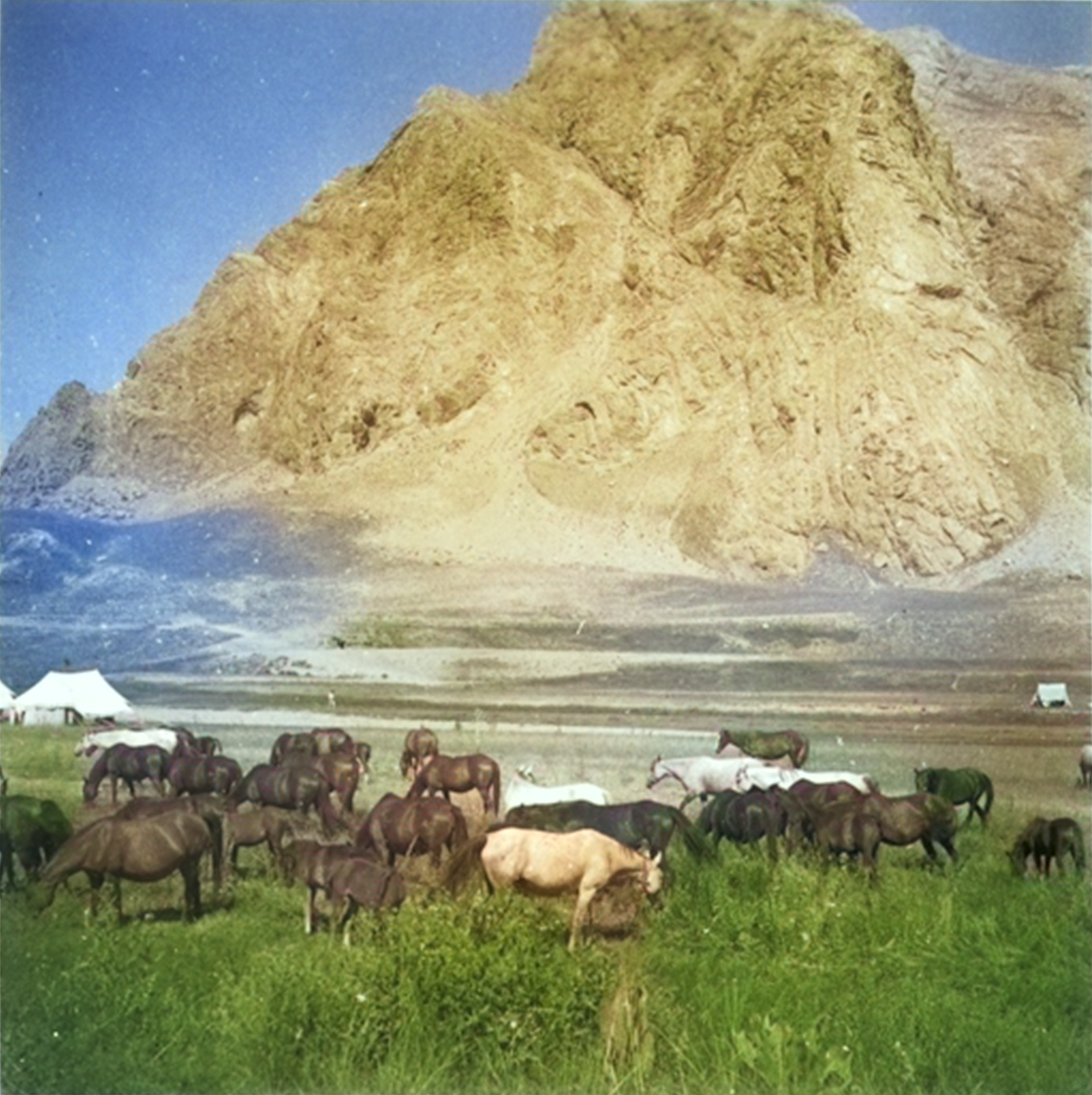
- A happy valley, rich in grass, water and fish, far from the cities, far from the busy roads, far from the opium dens. The fever passes, dilutes in the veins, seeps away.
***
I'm hungry, I think. And I'm freezing. In the big tent, dinner may already be on the table. The water is getting cold. So I think, and my eyes leave the shrinking flame and wander around the tent, clinging to familiar objects - there are not many of them - as if to reassure myself.
The tent is big, the walls are carefully connected to the linen cloth that forms the floor. Two carpets and a kilim are spread out above it. I bought the kilim from Bakhtiari nomads near Persepolis, it is yellow with red and black patterns and has a cheering effect. The walls are also yellow, halfway up there are colorful cords, on which hang my things neatly lined up: riding trousers, a couple of coarsely knitted sweaters, woolen shirts, knee socks, next to the backpack, a thermos flask, a pocket knife on a long chain, Fishing line, a rope, a pocket lantern. Next to the door is my gray flannel dressing gown and stained camel hair coat. On the cot lies a heavy blanket, black and white striped, made of goat's felt. In addition to the cot, there is a chair and a table, on which are a lamp, writing utensils - the ink bottle is half empty -, a stack of white paper, a couple of books.
To be precise, there are five books: a thick volume of "Cambridge Ancient History", a small book with a red cover "Pottery of the Near East", published by the British Museum - Diotima's letters to Hölderlin, Marcel Brion's "La Résurrection Des Villes Mortes", and an English novel that I have not read. The selection of these books is not random, it doesn’t change from day to day and is never added to. It is always the same four volumes that I leaf through and the fifth volume that I leave lying around.
Perhaps once, right at the beginning, when I was packing my things for the trip, I picked up these books by chance and selected them. I had no space to waste and so I limited myself to five volumes. Incidentally, I rarely read up here, so the selection was not very important. But now the books are there, in my tent - I think the Bible in a farmhouse has a similar status - and each page is irreplaceable to me, like the shirt I am wearing, like the tobacco pipe in my pocket. Objects have a new meaning in this solitude. Their existence confirms my own, I rely on them to be sure that I am still here, an isolated living thing, a human being, and that I have a name, an origin, and that I have somehow gotten here.
Now I look at my hands resting on my knees: my hands (but how lifeless, lifeless ...) -, I would like to have a mirror now: “There you are, not yet alienated, not lost” - Don’t you feel relief spreading? - Oh, it’s just the coolness of the approaching night. The horses are lying in the deep grass on the bank, the flocks of sheep have sunk into the sloping ground in their sleep, the marmots are hiding in their caves, camels are getting down on their knees. - "Only humans...", but the nomads have long since been asleep in their black tents.
***
Then I finally get up, exchange my wet clothes for warm and dry ones, blow out the flame in the glass cylinder. Outside I have to be careful not to fall over driven-in stakes and taut ropes. Light shimmers through the cracks in our living room-tent, a carpet hangs in front of the entrance.
I turn my back on the night, warmth welcomes me, comfort, a glass of whiskey, the smell of cigarettes. I drink, I look at my friends, stretched out in their comfortable armchairs, tanned, freshly shaved. - "How many trout today?" - One, in a brown velvet jacket, fills his pipe. Another fills the glasses. - "And you?" -And me? "If you carry on like this," says Marjorie, "we won't have any gin left in a week." She laughs, her voice is bright and friendly. Blue smoke rises: from the mangal pool, from our cigarettes. The night cold does not penetrate the well-sealed, double tent walls. The table is set. Ahmed will bring the food soon. Soup, fried trout. It is good to have a routine, daily habits, a warm house. Only the tufts of grass that you can feel under your feet through the carpet remind you that our house is a tent.
The English know how to make themselves at home anywhere, to have their hot bath, their "first tea" in bed before breakfast and their afternoon tea at five o'clock. In the evening you change your clothes, even if you live in a tent, two thousand five hundred and thirty meters above the Caspian Sea. In the small port of Bushire on the Persian Gulf, I once met a young Englishman, leaning alone at the dirty hotel bar, between eight and nine o'clock in the evening. He was wearing an immaculate white dinner jacket. We were the only Europeans in the room, he introduced himself: an employee of the "Anglo-Iranian Oil Company" - and suggested I try a vermouth. It was terribly hot. "And you're sitting here, all alone?" I asked, without expressing my thought that it was a little ridiculous to change clothes and keep to the cocktail hour under these circumstances. "It's bearable," the young man answered, "but the beer is awful, you can't get clean ice."
Up here in the Lahr valley we don't need ice, the water from the river does the same job. We have to be sparing with the gin. The nomads bring us charcoal that is burned in the forests of Mazandaran, fresh sheep's milk, sometimes a lamb. And we have trout every day. We live well, I think. It feels as if I am seeing all this for the first time tonight. This tent, our house. The carpets, warm and soft, spread over the grass, were woven by Bakhtiari, Kashgai, Turkmen women.These glasses from the bazaar in Tehran definitely come from Japan. The gin was distilled in England. The charcoal glows and spreads its warmth. Mules carried it up here, over sloping mountain paths. When we have no more charcoal, we will burn dry dung. We will live, live - each as best he can.- Why am I shaking? - The light of the petrol lamps is pleasant, you get used to it. Our chairs, folded up, are no bigger than an umbrella, you can easily hang them on the sides of a loaded mule. tie them up, and yet they are as comfortable as club chairs. - We've settled in so well! Ahmed brings steaming bowls, warmed plates. My goodness, how hungry I am! Outside, the night wind tears at the ropes of our tents.
***
Then the hopeless horror of the night!
Alone again, I begin to fill the tent with my steps, from the camp bed to the table, along the wall to the corner where you can hide your face. I prefer to avoid the entrance, I have tied it tightly, shut out the wind. Now it is slapping against the walls, they arch like sails, groaning. The wind whistles and gathers its flocks. Look out! The tent sways, the ground sways. The valley floor is a ship, seagulls screech around the masts. I listen. Then I walk again, two steps to the table, three along the wall, and the longer I walk, the easier, the more satisfying it becomes - now I'll be running, now spinning like a top, I won't get dizzy. Falling down like a tree! Or being killed, covered in branches...
Once I was locked up. Bars on the window, the door slammed shut and had no handle. But I waited to be freed again. Then I pictured it: walking freely over meadows and hills. My impatience heard the world breathing outside, the forests rustling, a thousand sails billowing, and everything was mine, everything belonged to my hope. - Once I was ill. I had a fever and was thirsty. Then I dreamed of an overflowing grape press. I drank, drank, and was insatiable, and slept my way to health. Haven’t I ever loved anyone? Can’t I remember a name, conjure a face? Oh, I have known the sea-wide, sea-like appearance of love, I have held tightly to beloved shoulders, felt beloved hands around my neck, a beloved mouth on my eyelids. We held each other and sank down to the depths of loneliness, and pushed up again, ecstatic. As a child, on summer nights, I could not sleep for impatience. I crept out, and it was already morning, and what a bright, wondrously dewy morning over the meadows! The bells were ringing in the church tower... Back then I set high goals to my longing, I gave names to my pain and sang songs. I never got tired.
What has changed since then?
Am I not the same?
***
Back then - yesterday - tomorrow? - Yes, yesterday. After breakfast I took paper and pen and the half-empty ink bottle, moved the table under the awning in front of the tent, and began to write. The wind, still strong in the early morning coolness, descended the rock face, I had to weigh down my paper with a stone. The river, a clear mountain stream, burbled over rocks, full of dancing sunspots.
Towards midday the sun turned white, unbearable. I undressed, let myself drift down the river, holding on to the bank and the smooth pebbles; it was a fun struggle. Afterwards I had to run back through the tall, crackling grass on the bank. Hard bushes scraped my skin. The sun lay heavily on my neck. My eyes closed to a narrow slit, and blinded, I ran, stumbled, until I finally reached the shade of the tent. But the air in the tent was stifling, suffocating. I dreamed in the afternoon, stretched out on the cot. I dreamed that I could no longer open my eyes, could no longer move my lips, that I was paralyzed. When I jumped up, it was five o'clock.
***
While we were drinking tea in the big tent, the discomfort became devilish. I was glad when Kerim came with his fishing rod to get me. And so it was evening. Yes, running over stones, hands in thorn bushes, neck braced against the powerful sun - climbing up the rock face in the tracks of the ibexes, soles burning, knees shaking, no shade anywhere! The sky a white fire! Deep below me, foals playing, pounding hooves, roaring water cascading over cliffs, sending out sprays of coolness. Back to the tents, which were firmly anchored on the green bank. Diving back into life!
That was yesterday. What has changed since then? I was not asked whether I wanted to survive the slow day.
***
It was suffering, loneliness, fever in the veins, cold shivering of mountain water under the skin. And yet I lived! I had to go along with it until the last minute, until the last heartbeat. Then a tremor of exhaustion ran through the grass and moved the stalks. A horse rose from its knees, arched its neck and let out a whinny, which was caught by the rock walls like a trumpet blast...
My signal to leave?
***
But it is late. An hourglass is on the wall. I’m lying down, stretching out my aching back, pulling the blanket up to my chin. The hollow crackling of this smooth, stiff blanket made of black goat hair has long become familiar to me, it has become indispensable to me. I heard it for the first time in the Turkish city of Konya, on a winter night. A fire was burning in the iron stove, but the room was not warm. The walls of the inn were so thin that the wind blew through them and moved the silky hair on the blanket. It looked as if shadows were gliding across the bed. Konya, city of delicately colored mosques and madrasas; snow lay on the domes.
I have to remember. I have to go back, step by step, then perhaps I will find the beginning again.
I have to conjure up names, call up faces, wake cities from their sleep. I will have to send trumpeters to the walls and gates of Baghdad, Jericho, Hama, Beirut, Aleppo, Latakieh, Jerusalem, until the walls collapse.
Go back to the Tower of Ur, the ziggurat, the mighty step pyramid that I saw emerge from the desert at sunrise. - Why am I not sleeping? - I am lying motionless, my face weighing heavily on the leather pillow. Are these memories, am I dreaming, am I searching in my dream? - What an effort, what an enormous expenditure of energy, on a trail that leads into a sea of yellow dust!
It is useless to fight against it.
I cannot silence the wind or stem the river, I cannot escape the tent walls or this valley, I cannot hold back a single hour.
I wait.
For another day?
*****
Next: "The Happy Valley" ch. 3
